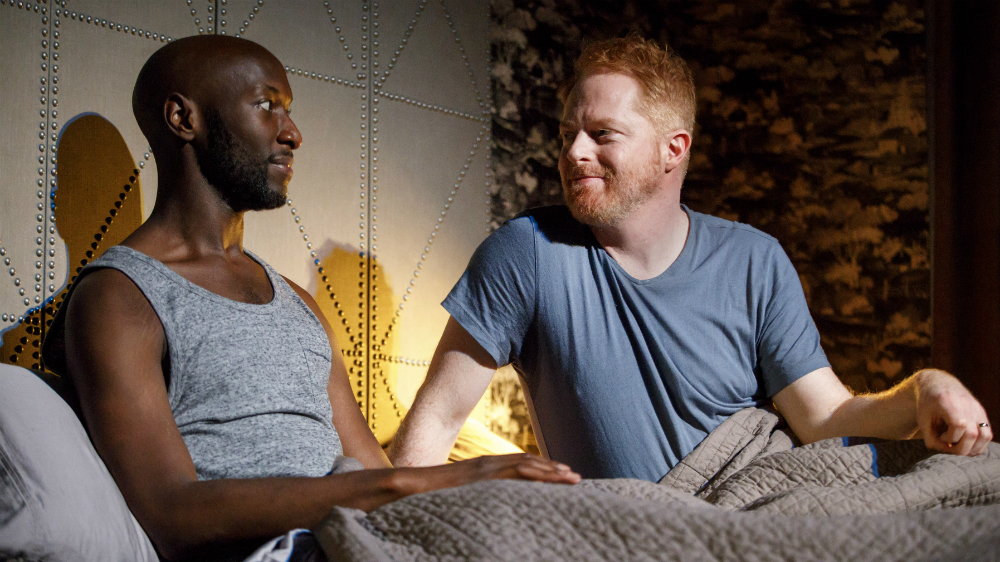Off Broadway Review: ‘Log Cabin’ Starring Jesse Tyler Ferguson
By Marilyn Stasio
LOS ANGELES (Variety.com) – Just when you thought it was safe to go to the theater again without suffering through plays about straight couples caught up in parenting issues of interest to no one but themselves, along come liberated gay couples to rehash the old dilemmas in playwright Jordan Harrison’s “Log Cabin,” now playing at Off Broadway’s Playwrights Horizons.
Do we want a baby? Yes? No? Boy? Girl? What shall we name it? Will it ruin our social life? Our sex life? Will we even be decent parents? Will the kid grow up to be as screwed up as we are? And if we do take the plunge, whose sperm should we use? Whose womb? “It’s the thing to ask gay people now,” someone observes about the protocol of bringing up the subject of baby, “after ‘Are you getting married?’”
As a committed couple, Ezra (Jesse Tyler Ferguson, playing neurotic-in-a-nice-way) and Chris (Phillip James Brannon, strong, confident, a survivor) have stability going for them, anyway. And Harrison (“Marjorie Prime,” “”) writes the kind of dialogue that doesn’t overly insult his characters’ intelligence, or ours. But for anyone other than gay couples who might be mulling over the same decision, parenthood is a narrow topic that here leads to nothing bigger or grander than its own slender self.
Ezra and Chris are drawn into the current gay preoccupation with having children when their lesbian friends, Jules (played with wit by Dolly Wells) and Pam (Cindy Cheung, an elegant presence), decide to get pregnant. Once the sperm issue is resolved, Pam gives birth to a little guy who is played by a grown man with facial hair (Ian Harvie, playing up the butch factor) and an extensive vocabulary. This is fun — until it wears thin.
The original element that Harrison brings to his play is a man with a womb. As a trans man who took the hormones but didn’t have surgery, Henry (Harvie again) has the equipment to have his own child if he wanted to. This also makes him a person of interest to friends who would like to have a kid but either don’t have wombs of their own or don’t care to use them.
There’s potential drama — and comedy — in this situation, if Harrison had the heart for it. Unfortunately, he’d rather just talk about it. There comes a point, roughly midway through the play, when the principals are so talked out on the subject that two of them go against character by having a quickie in the nursery while the others head up to the roof for no good reason except to set up the quickie.
Conversation, of which there is much, is clever enough, but mostly shallow. Which makes Jules’s observation about gay parenting jump into your lap for being so smart and to the point: “They couldn’t get married, and then they could. Their families wouldn’t accept them and then they would. They didn’t have any money and then they did. There had to be something else to want. So, a baby.”
Jules, the resident thinker in this crowd, also has the best comment on the touchy subject of Henry’s gender fluidity. “That’s the whole thing with the trans movement,” she says wryly. “We’re all fully interested in navigating this brave new world with them, but it sometimes seems like they want us to get it wrong.”
Well, Harrison has taken it upon himself to explain it all, at length and ad nauseam.

